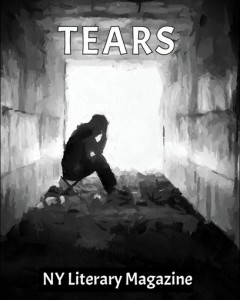When I was a kid, a hairdresser told me that if I wanted my hair to grow faster, I should tie a weight to the end of my ponytail and leave it there for one hour every day, as if those strands were coiled up under my scalp, just waiting to be coaxed out.
Some bad advice is easy to recognize, but a lot of it we take to heart because we hear it often, or from the mouth of someone we trust. The following is some bad advice that we all hear at some point in our writing life, and why it’s due for revision.
It can’t be taught.
There are several different versions of this one floating around out there; that those with talent are born with it, that creativity is innate or that if you didn’t start young, you’ve missed your chance to be truly great. If this were true, there would only be twelve books in the library. If you devote yourself to studying the craft of writing, you will get better. Many great authors wrote work that never saw the light of day before getting their first poem, article, or story published; it’s all part of the learning process. While acquiring the skills to write well may have a less clear-cut path than, say, learning how to drive, the resources are there for the taking, and as with many occupations, hard work and dedication can take you much further than talent alone.
Write what you know.
Especially with the growing popularity of genre fiction, this little tidbit has worn out its welcome. By all means, incorporate personal experience into your work and use your powers of observation to collect real-world details that add texture to your imagined one, but don’t stop there! Let your imagination rule the page, permit your work to be outlandish and you’re more likely to surprise yourself and your readers. Just as importantly, let research fuel your writing. Think you don’t know enough to write the next scientifically-accurate space adventure? A few hours in the library will change that.
Don’t do it for the money.
Poor money, it gets such a bad rap! Anyone who pursues an artistic vocation will probably hear this one at some point, usually backed up by some dubious statistics about how only one percent of aspiring writers ever get published. So what? The truth is, nobody becomes a writer under duress. You probably already love it, and that time-worn notion of the starving artist might seem romantic, but looking for opportunities to get paid should be seen for what it is; a way to facilitate more writing. Plus, being paid for your work is priceless reassurance that what you are doing has value, that there is a market for it and people want to read it, which is a great motivator to continue putting pen to paper.
While you should write because you love writing and not just because you’re hoping to become a rich author, there is nothing wrong with getting paid for your good work. Authors who never sell a single copy of their books are very sad, frustrated people who often give up on writing after a while.
Don’t waste your best idea on your first novel.
Maybe you want to get really good before you use that one explosive idea that’s going to get you on the bestseller list. Don’t sit on on it. Why not let that great idea inspire you to do it justice by writing it as best you can, and then making it even better in edits? If you hold back, chances are anything you write in the meantime just won’t have the spark needed to get you to the finish line, or to grab a publisher’s attention. Think of all the hard work that goes into that first novel – doesn’t it deserve your best idea? Be generous to your writing and it will be generous to you. Besides, you will have more great ideas, I promise.
Always finish what you start.
This is great advice a lot of the time; the trick is in knowing when it isn’t. Part of the process of learning how to write well, is to write badly, probably for a long time. Sometimes it’s the idea that falls short, sometimes it’s the point of view that’s not right, or maybe you wanted to experiment with a writing style that in the end feels limiting. This is ok! But don’t waste your time trying to complete every poem or novel if you know they aren’t working. Take what you can learn from these efforts and start again on something new, something that insists on being followed through straight to its end.
Just write. Write every day.
Putting aside the fact that everyone is different, and a daily writing routine may just not work for you – some writers work in bursts of fifteen thousand words and then nothing for a week – there are times in the writing process when this advice just isn’t helpful. You have to do more than “just” write. You also need to live, to explore, and to be curious so that you’ll have something to write about when you sit down in front of that laptop or notebook. Also, after pouring out a river of words, it’s important to refill the tank. After you exhale, it’s time to inhale; see a play, go for a hike, take a friend to dinner, or learn something new.
Paper your walls with rejection slips.
Famously said by Ray Bradbury, this one is really up to you. Paper maché could also be an option, and a conversation piece to boot.
While rejection letters motivate some people to keep on trying to get published regardless, for others it may be disheartening.
Some writers prefer reading stories of successful authors and focusing on their goal, rather than gazing at their rejection slips each day.
In the end of the day, take the advice which you feel is right for you and ignore the rest.
Every writer writes differently. There is no right and wrong in creative writing.











October 2, 2017 at 12:59 PM
Thank you for saying this. I see the same old myths everywhere. I write for fun and money. I quite for a week or two sometimes, and I love to research topics I don’t know. It’s about time someone said this.
Side note, the text when I type here is black on a dark color and bleeds. Can hardly read what I am typing.